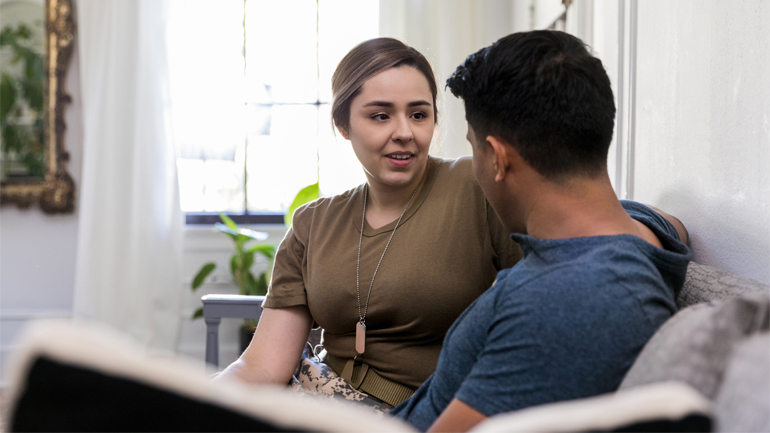Want to hear a secret?
Well, if you're wondering how much debt your partner really has, where that suspicious bill came from, or would like to know more about your spouse's secret bank account, you're not alone.
In fact, financial secrets, debt stress and COVID-19 impacts are likely prevalent whether you're American or Canadian.
TD recently conducted its Love and Money survey, connecting with couples of all ages from across North America to learn about their finances, their level of satisfaction in their relationships, and how COVID-19 has affected them.
The results revealed some interesting information that uncovered some differences and similarities on how both American and Canadian couples manage and talk about money with each other.
The 'secret' to a happy relationship
Maybe the old adage about Canadians being polite is true?
The TD survey found that among American respondents, 11% admitted to keeping a financial secret from their partner, while only 8% of Canadians respondents admitted to the same type of financial deception.
Among those who admitted to keeping a secret in America, 42% said it involved credit card debt, while 18% said it was a hidden bank account.
North of the border, 29% of those keeping financial secrets are hiding secret accounts, while 22% are hiding debt from their partner.
Despite these subtle differences, around half of couples surveyed in both countries could agree that they have found it easy to talk about money during the COVID-19 pandemic.
'We need to talk' … about money
The correlation between a happy relationship and having talks about money more often also crossed borders in 2020. In fact, the stats were almost identical.
In Canada, 85% of couples surveyed said they talk about money monthly, while 30% say they have monthly financial arguments.
In the States, about 86% of couples surveyed said they talk about finances once or more per month, with 1 in 3 reporting that they argue about money.
In fact, according to the survey, it seems that the more respondents talk about their finances with their partner, the less they argue.
More than half of those surveyed in Canada said they talk about money at least once a week, with only 8% arguing in the same time span. In the States, that number was again similar on both accounts, with 10% of American couples arguing weekly.
A year of uncertainty
With COVID-19 seeping into the fabric of so many fundamental ways of life, financial milestones for North Americans of all ages were affected.
More than half of both Americans and Canadians surveyed said they decided to hold off on milestone purchases this past year due to economic uncertainty.
Among Americans surveyed, 30% of those affected said they held off on buying a home and 43% said they reduced spending on travel. This is not surprising as the majority of travel was halted in 2020 to help combat the spread of COVID-19.
Among Canadian respondents, 23% of those affected revealed they were planning to hold off on retirement due to uncertain economic conditions, while 20% surveyed decided not to buy a home, and 11% not to have a baby.
It pays to save
Though spending on some items in 2020 slowed down, nearly nine in 10 Canadian couples surveyed are still saving for things like a rainy-day fund, retirement, and travel.
About 40% or more of all age groups in Canada were saving for rainy day, with those older than 75 more prone to save at 52%.
And while saving is a priority according for Canadian respondents, having joint deposit accounts appears to be less important to them.
North of the border, 67% of those surveyed said they have at least one account joint with their partner, while that number was 74% in the US.
The same goes for credit cards, with 52% of Canadian respondents holding at least one credit card jointly with their partner, while 64% of Americans doing the same.
For survey results for U.S. respondents, click here.
For survey results for respondents in Canada, click here.
